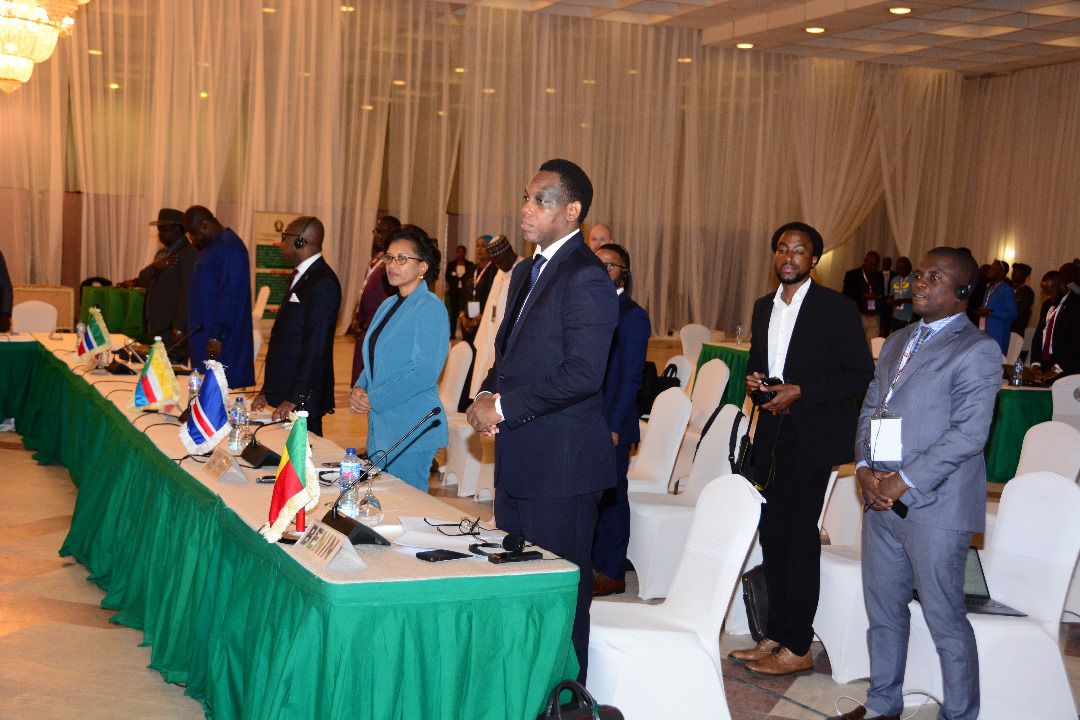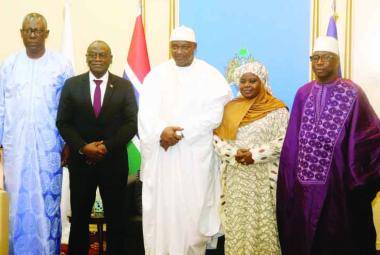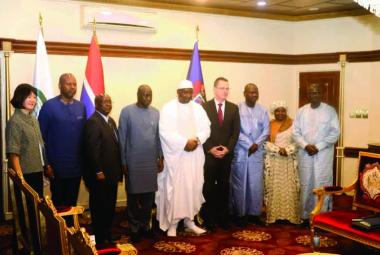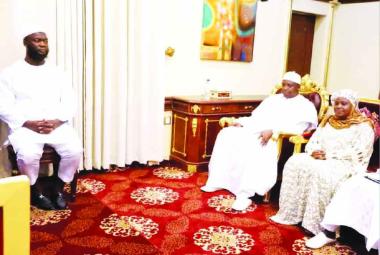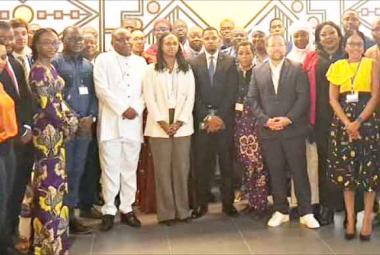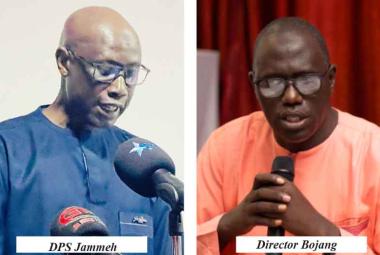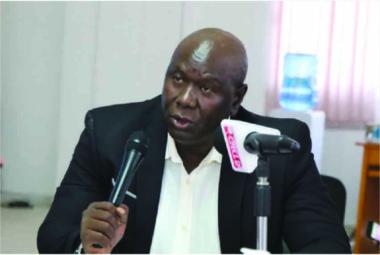By Kumba Leigh
The Inter-Governmental Action Group Against Money Laundering in West Africa (GIABA) is holding its 40th Technical Commission and Plenary and its 27th Ministerial Committee meeting in Abuja, Nigeria’s capital.
. In his opening remarks at the plenary, the Director General of GIABA, Mr. Edwin W. Harris Jnr informed participants that the Technical Commission and Plenary is fundamental in the assessment of the activities of GIABA.
“Our gathering here reminds us of our collective effort in the fight against money laundering, terrorist financing and other forms of transnational crimes which urgently require coordination and cooperation with oneness of purpose in protecting our economies and preventing other adverse activities to our national and regional security.
Results from accessed countries, thus far published from the second-round show progress has been made in terms of technical compliance across member States, however, fundamental major improvements are required in terms of effectiveness,’’ he stated.
He further encouraged member states to ‘‘create a mechanism that takes away profits from criminal activities. This mechanism should now form core part of our fight against Money Laundering and Terrorist Financing and other transnational crimes. It becomes more imperative that the mandate of GIABA restricted to fighting Money Laundering and Terrorist Financing in keeping the economies of West Africa safe be visited to include other major component in keeping with emerging trends and current day realities”.
In his goodwill message to participants at the plenary, Mr. Jeremy Weil, Vice President of the Financial Action Task Force, FATF, commended GIABA member nation’s collective efforts in supporting effective Anti-Money Laundering (AML), and Counter Financing of Terrorism (CFT) measures within the region. He opined that such efforts should be sustained.
“I would like to take a moment today to recognize all those who have led and championed this work, including GIABA members, the GIABA Secretariat, and of course the GIABA contact group co-led by Senegal and Ghana, with participation of Nigeria, Ivory Coast and the ECOWAS Commission.
Ultimately, your hard-won gains can only be sustained through the collective will, and effort of the people in this room; the GIABA membership,’’ he said.
While declaring the Technical Commission, and Plenary open, Nigeria’s Minister of Justice, Lateef Olasunkanmi Fagbemi stated that: “As the regional institution responsible for strengthening the capacity of member states to fight money laundering and terrorist financing, the importance of GIABA has only increased over the decades. Across our sub region, we face myriad of challenges, from the threats of illicit financial flow to the existential dangers posed by terrorist groups.
These challenges are not confined to our sub region alone, but span across the globe and in this respect, the importance of regional and international cooperation must be at the core of our efforts to combat money laundering, terrorist financing and the financing of proliferation of weapons of mass destruction”.
He noted that leaders of member countries must provide a conducive environment for organisations saddled with the responsibility of fighting money laundering and financial crimes carry out their assignments without hindrance:
“It is important that we take time to reflect on how we, as leaders, in our countries have contributed to strengthening our national AML/CFT/CPF frameworks. I believe that the FATF standards are merely the minimum benchmark that we must all aspire to in order to address the serious criminal offences that are prevalent in our countries and across our region.
Our legal frameworks, policies and institutional capacities must aspire to put in place the foundations necessary to achieve the vision of the Africa 2063 Agenda, of an integrated, prosperous and peaceful Africa, driven by its own citizens, representing a dynamic force in the international arena,’’ he said.
Stating what Nigeria is doing to sustain the fight against Money Laundering, and other financial crimes, the Nigerian Minister informed participants that the country is not resting on its oars until it brings these verses to their knees.
“We have also strengthened our national coordination mechanisms and enhanced the role of the Inter-Ministerial Committee on AML/CFT/CPF, the National Sanctions Committee, and the National Counter-Terrorism Centre. We are also pleased to report that in May this year, we launched our National Open Central Register of Beneficial Ownership.
This register which is publicly accessible, in line with the provisions of the United Nations Convention Against Corruption, has been acknowledged as a regional and global model for the transparency of legal persons and will further enhance the ability of our law enforcement authorities and prosecutors to investigate and bring to justice individuals who seek to use corporate vehicles to facilitate the laundering of their illicit earnings,’’ he explained.
As part of the statutory meetings, the 27th meeting of the GIABA Ministerial Committee (GMC) will also hold on Saturday, 18 November, 2023. The GMC is the policy making organ of GIABA. It comprises the three GIABA line ministers from all member States (Ministries of Finance, Security/Interior and Justice). The meeting will, among other things, consider and adopt the Director General’s Summary Activity Report and the Report of the 40th GIABA Technical Commission and Plenary.
About
GIABA is a specialized institution of the Economic Community of West African States (ECOWAS), that is responsible for strengthening the capacity of member states towards the prevention and control of money laundering and terrorist financing in the region. Apart from member states, GIABA grants Observer Status to African and non-African States, as well as Inter-Governmental Organizations that support its objectives and actions and which have applied for observer status.
The GIABA Technical Commission is an assembly of experts, including representatives of member States (MS), development partners and observers in the fight against money laundering (ML) and terrorist financing (TF), who meet twice yearly to share their experiences with respect to the challenges faced in implementing effective Anti-Money Laundering (AML) and Counter Financing of Terrorism (CFT) measures

